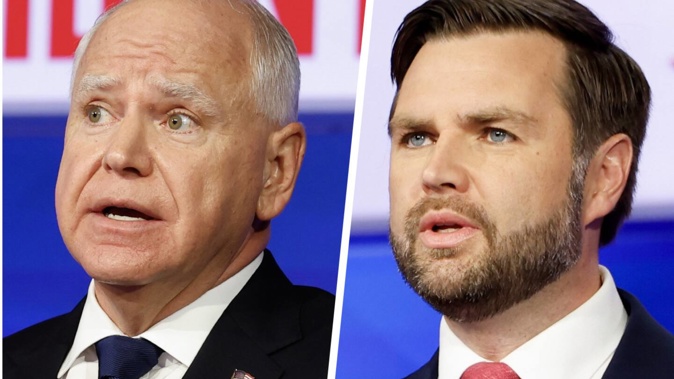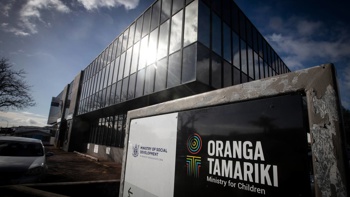
Democrat Tim Walz and Republican JD Vance have clashed over the Middle East crisis, immigration, taxes, climate change and energy at a US vice presidential debate whose first half was heavy on policy disagreements but light on personal attacks.
The two rivals, who have savaged each other on the campaign trail, largely avoided going after each other on Tuesday night, instead saving their fire for the candidates at the top of their tickets, Democratic Vice President Kamala Harris and Republican former president Donald Trump.
Vance questioned why Harris had not done more to address inflation, immigration and the economy while serving in President Joe Biden’s administration, mounting a consistent attack line that Trump often failed to deliver while debating Harris last month.
“If Kamala Harris has such great plans for how to address middle-class problems, then she ought to do them now - not when asking for promotion, but in the job the American people gave her three-and-a-half years ago,” Vance said.
Walz described Trump as an unstable leader who had prioritised billionaires and turned Vance’s criticism on its head on the issue of immigration, attacking Trump for pressuring Republicans in Congress to abandon a bipartisan border security bill earlier this year.
“Most of us want to solve this,” Walz said of immigration.
“Donald Trump had four years to do this, and he promised you, Americans, how easy it will be.”

Minnesota Governor Tim Walz and US Vice-President Kamala Harris in their sit-down interview with CNN. Photo / CNN
The debate at the CBS Broadcast Center in New York began with the escalating crisis in the Middle East, after Israel continued its assault on southern Lebanon on Tuesday and Iran mounted retaliatory missiles strikes against Israel.
Walz said Trump is too “fickle” and sympathetic to strongmen to be trusted to handle the growing conflict, while Vance asserted that Trump had made the world more secure during his term.
Asked whether he would support a pre-emptive strike against Iran by Israel, Vance suggested he would defer to Israel’s judgment, while Walz did not directly answer the question.
Walz, 60, the liberal governor of Minnesota and a former high school teacher, and Vance, 40, a bestselling author and conservative firebrand US senator from Ohio, have portrayed themselves as two sons of America’s Midwestern heartland with deeply opposing views on the issues gripping the country.
The rivals each sought to land a lasting blow at the last remaining debate before the November 5 presidential election.
Harris was widely viewed as the winner of her sole debate with Trump on September 10 in Philadelphia, which was watched by an estimated 67 million people.
That square-off did little to change the trajectory of an extremely close election battle. While Harris has edged ahead in national polls, most surveys show voters remain fairly evenly divided in the seven states that will decide the November election.

Former US President Donald Trump and Republican candidate for US Senate JD Vance greet supporters during the rally at the Dayton International Airport on November 7, 2022 in Vandalia, Ohio. Photo / Getty Images
Walz was asked about a report on Tuesday that he was not in China during the violent 1989 Tiananmen Square crackdown, as he had previously claimed.
“I’m a knucklehead at times,” he said. “I got there that summer and misspoke on this. So I was in Hong Kong and China during the democracy protests, and from that I learned a lot about what it means to be in governance.”
Vance, meanwhile, defended his running mate despite having criticised Trump ahead of the 2016 election.
“I was wrong about Donald Trump,” he said.
“I was wrong, first of all, because I believe some of the media stories that turned out to be dishonest fabrications of his record. But most importantly, Donald Trump delivered for the American people.”
Political analysts say vice presidential debates can be fiery but generally do not alter the outcome of an election. That said, even a slight shift in public opinion could prove decisive with the race on a razor’s edge five weeks before Election Day.
With no more debates planned, the stand-off allows Walz and Vance to make closing arguments on behalf of their campaigns just as early voting ramps up across the country.
Take your Radio, Podcasts and Music with you









